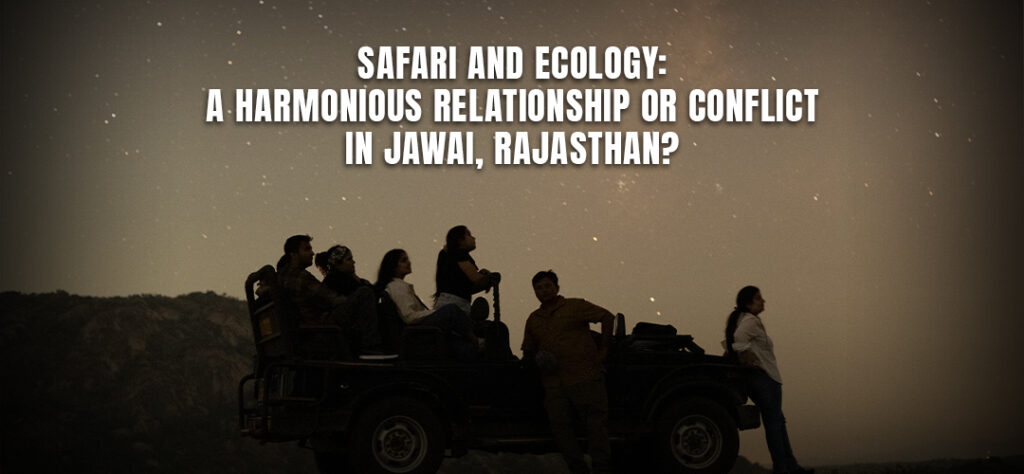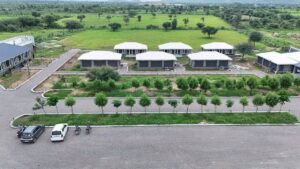
Many of you are looking for eco-friendly vacation stays. Safaris are one of those incredible trips that can be done as a couple, with friends or family, entirely focused on the beauty of nature. These stays also allow you to immerse yourself in another culture.
Until the late 1990s, the phrase “Safari Holiday” was more likely to evoke a holiday dedicated to hunting animals. In ancient times, tourists paid to hunt lions, elephants, and other large animals in the forest area—holiday plans that today shock the entire world.
Can you be a fervent environmentalist and go on a safari today? Hunting trophies are no longer the focus; rather, they are nature to be defended at all costs. While safari stays are the main financial lever for national parks and public animal reserves, some gray areas exist.
Here are some common doubts that need to be cleared, and Seasons Jawai takes a step ahead on this topic through this post-
- Do visitors disturb the animals?
The issue of animal welfare on safari is also at the heart of the authorities’ concerns. If you want to experience an eco-friendly holiday in accordance with your principles, opt for reserves that you can explore on foot or by vehicle.
Some national parks choose to impose motor vehicles on their roads for the safety of visitors. If giants like Leopards were to get too close to humans, they would be safe in the vehicle. Therefore, our team at Seasons is fully dedicated to working 24*7 to make your Wildlife Safari Camp In Jawai
with us safe and without harming natural habitats.
- What about local populations?
Local populations in Jawai, such as the Rabari herders, play a vital role in leopard conservation. These people have traditional knowledge of the terrain and wildlife helps track leopards during safaris. An eco-tourism, including safaris, provides sustainable livelihoods, fostering a sense of responsibility for wildlife protection. Locals are also involved in mitigating human-wildlife conflict and promoting coexistence. Through their participation, communities support both conservation efforts and the region’s cultural heritage, ensuring a balanced relationship between people and wildlife.
- Choosing accommodation for an eco-safari
Most camps, resorts or lodges located within national parks or reserves do everything to reduce their impact on the environment and, therefore, on the lives of animals. Seasons Jawai often prides itself – and rightly so – on being eco-designed, built into the rock itself, for example, and constructed with natural and local materials. Natural materials power us; we offer local cuisine and do a real job of raising awareness about respecting the environment.
Striking a Balance for the Future
Sustainable practices are one of the important steps to maintain a harmonious relationship between safari tourism and ecology. Here are several measures that can be taken:
- Strict Rules and Regulations: All tourists should also be educated on the significance of following some boundaries without disturbing the animals.
- Community Involvement: Involving the local communities in conservation efforts is essential. The involvement of the Rabari and other local groups as guides and conservationists ensures that the tourism benefits are directly funnelled into the community.
- Promoting Low-Impact Tourism: Eco-tourism should mainly focus on creating low-impact experiences. This includes eco-friendly lodges, responsible waste disposal, and minimizing the carbon footprint of safari vehicles.
- Conflict Mitigation: Creating buffer zones around villages, better livestock management practices, and providing compensation for any loss of livestock due to leopard attacks can help solve any type of human-wildlife conflict.
- Efficient Monitoring: Well, the continuous monitoring of both wildlife populations and tourism impacts is crucial. Researchers and conservationists must work together to assess the health of the leopard population and adapt safari practices based on these findings.
The Final Take!!
It is never easy to answer the question,” Is a Jawai safari eco-friendly or not? “You have to consider all the information about your trip. Season’s team believes that, along with locals, tourists are also responsible for creating a harmonious balance between safari and ecology.
So, what are you still searching for? Book your stay with us and contribute to the safe living of wildlife in Jawai, Rajasthan.

